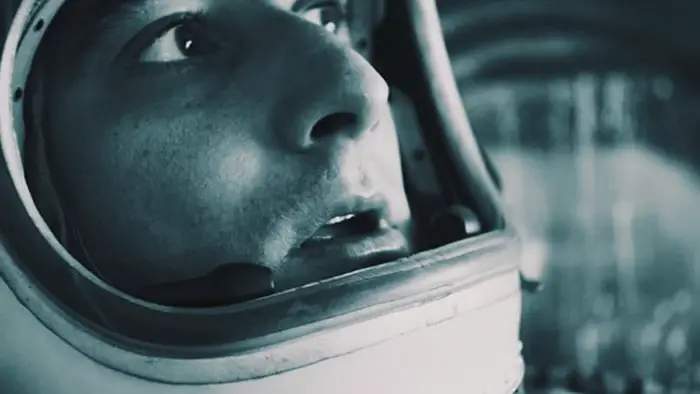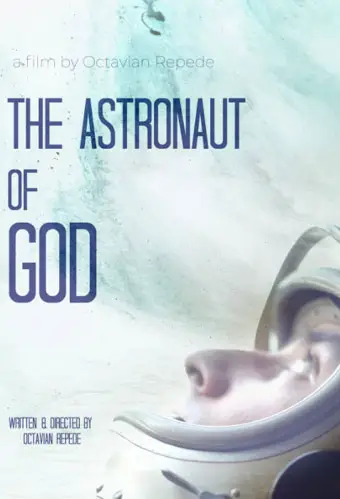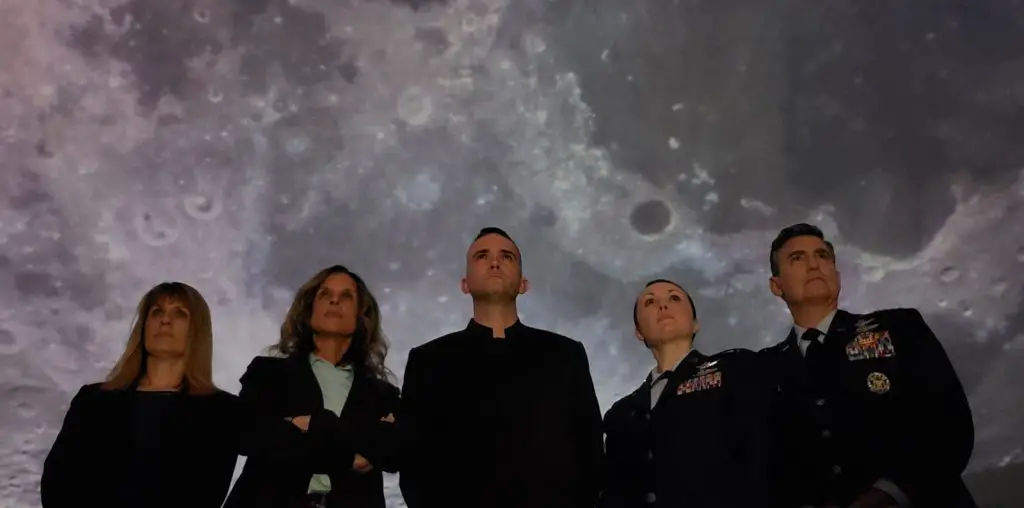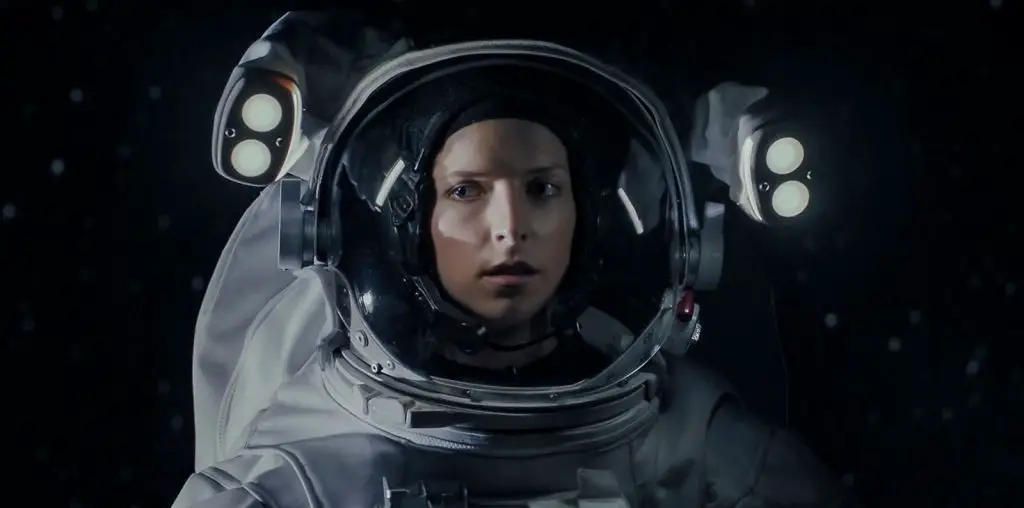
There is a plot to writer-director-star-producer-editor-composer-director of photography Octavian Repede’s science fiction drama The Astronaut Of God, but that is hardly the point of the film. In 1962, a Romanian immigrant (Repede) is the lead astronaut in U.S. Space Command’s latest effort to reach the stars. Shortly after leaving Earth’s orbit, the astronaut sees a sign that God does exist. However, this experience leaves him unable to contact those still on Earth, making his reentry fraught with peril.
That is not a bad story at all, and another movie could pull a lot of tension out of a straight telling of it. But for Repede, it is merely the framework on which he explores humankind’s constant search for a higher power, the feeling of purpose that such a thing can bring, and how exploring the cosmos is interrelated to spirituality. Despite some odd moments, the one-man crew pulls off the grandiose themes in an engaging way that will enthrall even non-believers.
Let’s start with the negatives, as there are a few present. The German sentence “Ich habe für die Nacht im Hotel eingecheckt,” in English means “I checked into the hotel for the night.” However, if strictly broken down word by word, it would be “I have for the night checked into the hotel.” While technically correct, it is not quite right as it fails to account for the different sentence structures between the two cultures. Such issues happen from time to time throughout The Astronaut Of God, where the meaning of what Repede’s voice-over is conveying can be figured out, though it sounds unnatural and awkward. It momentarily takes audiences out of the scene as they suss out the true point of this or that line.

“Shortly after leaving Earth’s orbit, the astronaut sees a sign that God does exist.”
Then there are the computer-generated effects. While the film is a low-budget indie feature, the CGI used for the spaceship looks plastic and is very obviously an effect. This is a shame, as the vistas of the galaxy that are shown look incredible, and the detailing of the cockpit highlights the immense amount of work put into every detail. So to have such rough, untextured imagery used pretty often throughout does hamper the overall production.
However, The Astronaut Of God still proves to be a most fascinating watch. The ideas that the multi-hyphenate filmmaker brings to the forefront are engrossing. As the astronaut gets lost in space, having visions of God, Repede asks viewers to look at their place on Earth, the world’s place in the galaxy, and the galaxy’s place in the universe. If that sounds daunting, that is the point. Through stirring music, intimate closeups of Repede’s expressive face, and beautiful shots of space, the filmmaker brings those lofty themes down to a relatable level.
Repede is more interested in getting audiences to look inward, but the lack of a proper story could cause some viewers to scoff. See, whether or not the astronaut’s experiences are real, take a back seat to the soul-searching he hopes to stir. Others may also be frustrated by the astronaut’s interactions with God; I mean, it is literally in the title. But, the filmmaker does not try to disprove or sow distrust of any religion, positioning the deity at the center of the story as a creator without really delving into specifics. This allows for all those watching to see themselves in the astronaut and relate to his plight on a deeply personal level.
The personal level is what gives The Astronaut Of God its power. Despite some translation hiccups and questionable CGI, Repede isn’t afraid to tackle big issues in a truly cinematic way, which creates a film unlike any other. While it is not for everyone, its very uniqueness is enough to warrant a watch at least once.

"…stirring music...and beautiful shots of space..."



I had to stop watching this most boring film after 20 minutes.This is not Sci-Fi. It should be filed under “G” for GARBAGE.